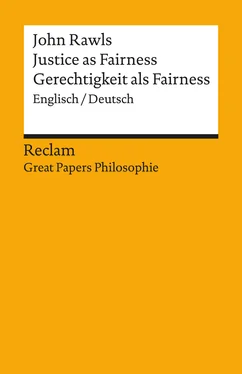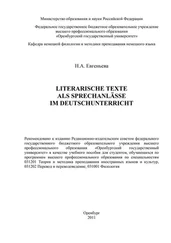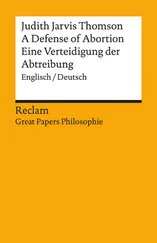Moreover, the individuals receiving these benefits are not conceived as being related in any way: they represent so many different directions in which limited resources may be allocated. The value of assigning resources to one direction rather than another depends solely on the preferences and interests of individuals as individuals. The satisfaction of desire has its value irrespective of the moral relations between persons, say as members of a joint undertaking, and of the claims which, in the name of these interests, they are prepared to make on one another;19 [187] and it is this value which is to be taken into account by the (ideal) legislator [84]who is conceived as adjusting the rules of the system from the center so as to maximize the value of the social utility function.
It is thought that the principles of justice will not be violated by a legal system so conceived provided these executive decisions are correctly made. In this fact the principles of justice are said to have their derivation and explanation; they simply express the most important general features of social institutions in which the administrative problem is solved in the best way. These principles have, indeed, a special urgency because, given the facts of human nature, [86]so much depends on them; and this explains the peculiar quality of the moral feelings associated with justice.20 This assimilation of justice to a higher order executive decision, certainly a striking conception, is central to classical utilitarianism; and it also brings out its profound individualism, in one sense of this ambiguous word. It regards persons as so many separate directions in which benefits and burdens may be assigned; and the value of the satisfaction or dissatisfaction of desire is not thought to depend in any way on the moral relations in which individuals stand, or on the kinds of claims which they are willing, in the pursuit of their interests, to press on each other.
7. Many social decisions are, of course, of an administrative nature. Certainly this is so when it is a matter of social utility in what one may call its ordinary sense: that is, when it is a question of the efficient design of social institutions for the use of common means to achieve common ends. In this case either the benefits and burdens may be assumed to be impartially distributed, or the question of distribution is misplaced, as in the instance of maintaining public order and security or national defense. But as an interpretation of the basis of the principles of justice, classical [188] [88]utilitarianism is mistaken. It permits one to argue, for example, that slavery is unjust on the grounds that the advantages to the slaveholder as slaveholder do not counterbalance the disadvantages to the slave and to society at large burdened by a comparatively inefficient system of labor. Now the conception of justice as fairness, when applied to the practice of slavery with its offices of slaveholder and slave, would not allow one to consider the advantages of the slaveholder in the first place. As that office is not in accordance with principles which could be mutually acknowledged, the gains accruing to the slaveholder, assuming them to exist, cannot be counted as in any way mitigating the injustice of the practice. The question whether these gains outweigh the disadvantages to the slave and to society cannot arise, since in considering the justice of slavery these gains have no weight at all which requires that they be overridden. Where the conception of justice as fairness applies, slavery is always unjust.
I am not, of course, suggesting the absurdity that the classical utilitarians approved of slavery. I am only rejecting a type of argument which their view allows them to use in support of their disapproval of it. The conception of justice as derivative from efficiency implies that judging the justice of a practice is always, in principle at least, a matter of weighing up advantages and disadvantages, each having an intrinsic value or disvalue as the satisfaction of interests, [90]irrespective of whether or not these interests necessarily involve acquiescence in principles which could not be mutually acknowledged. Utilitarianism cannot account for the fact that slavery is always unjust, nor for the fact that it would be recognized as irrelevant in defeating the accusation of injustice for one person to say to another, engaged with him in a common practice and debating its merits, that nevertheless it allowed of the greatest satisfaction of desire. The charge of injustice cannot be rebutted in this way. If justice were derivative from a higher order executive efficiency, this would not be so.
But now, even if it is taken as established that, so far as the ordinary conception of justice goes, slavery is always unjust (that is, slavery by definition violates commonly recognized principles of justice), the classical utilitarian would surely reply [189] that these principles, as other moral principles subordinate to that of utility, are only generally correct. It is simply for the most part true that slavery is less efficient than other institutions; and while common sense may define the concept of justice so that slavery is unjust, nevertheless, where slavery would lead to the greatest satisfaction of desire, it is not wrong. lndeed, it is then right, and for the very same reason that justice, as ordinarily understood, is usually right. If, as ordinarily understood, [92]slavery is always unjust, to this extent the utilitarian conception of justice might be admitted to differ from that of common moral opinion. Still the utilitarian would want to hold that, as a matter of moral principle, his view is correct in giving no special weight to considerations of justice beyond that allowed for by the general presumption of effectiveness. And this, he claims, is as it should be. The every day opinion is morally in error, although, indeed, it is a useful error, since it protects rules of generally high utility.
The question, then, relates not simply to the analysis of the concept of justice as common sense defines it, but the analysis of it in the wider sense as to how much weight considerations of justice, as defined, are to have when laid against other kinds of moral considerations. Here again I wish to argue that reasons of justice have a special weight for which only the conception of justice as fairness can account. Moreover, it belongs to the concept of justice that they do have this special weight. While Mill recognized that this was so, he thought that it could be accounted for by the special urgency of the moral feelings which naturally support principles of such high utility. But it is a mistake to resort to the urgency of feeling; as with the appeal to intuition, it manifests a failure to pursue the question far enough. [94]The special weight of considerations of justice can be explained from the conception of justice as fairness. lt is only necessary to elaborate a bit what has already been said as follows.
If one examines the circumstances in which a certain tolerance of slavery is justified, or perhaps better, excused, it turns out that these are of a rather special sort. Perhaps slavery exists as an inheritance from the past and it proves necessary to dismantle it piece by piece; at times slavery may conceivably be an advance [190] on previous institutions. Now while there may be some excuse for slavery in special conditions, it is never an excuse for it that it is sufficiently advantageous to the slaveholder to outweigh the disadvantages to the slave and to society. A person who argues in this way is not perhaps making a wildly irrelevant remark; but he is guilty of a moral fallacy. There is disorder in his conception of the ranking of moral principles. For the slaveholder, by his own admission, has no moral title to the advantages which he receives as a slaveholder. He is no more prepared than the slave to acknowledge the principle upon which is founded the respective positions in which they both stand. Since slavery does not accord with principles which they could mutually acknowledge, they each may be supposed to agree that it is unjust: it grants claims [96]which it ought not to grant and in doing so denies claims which it ought not to deny. Amongst persons in a general position who are debating the form of their common practices, it cannot, therefore, be offered as a reason for a practice that, in conceding these very claims that ought to be denied, it nevertheless meets existing interests more effectively. By their very nature the satisfaction of these claims is without weight and cannot enter into any tabulation of advantages and disadvantages.
Читать дальше












